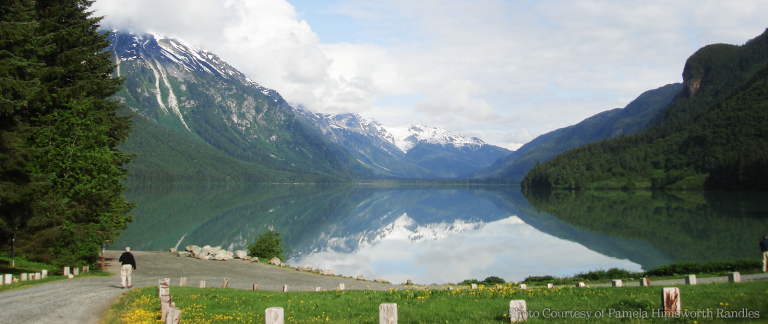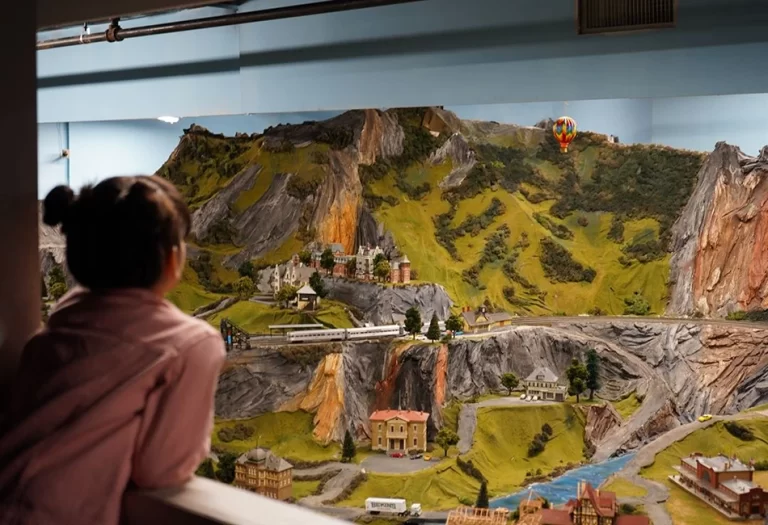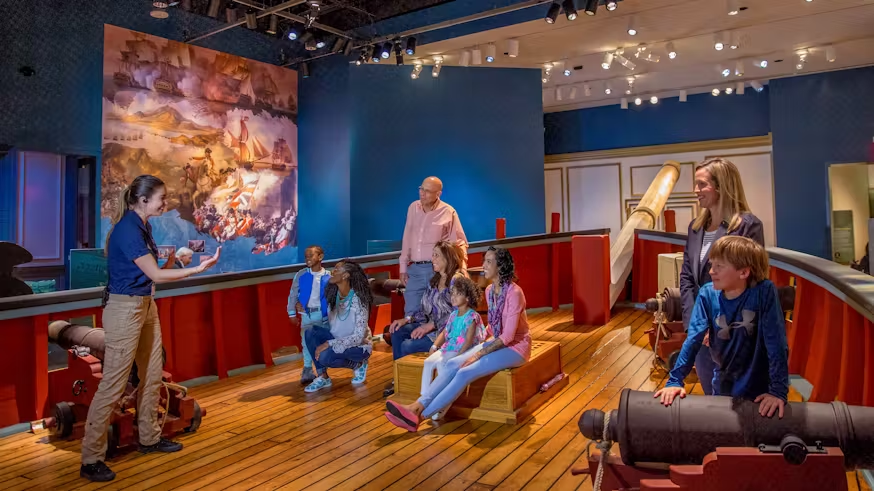With the nation’s 250th anniversary coming up, teachers will be making American history come alive for their students on excursions in the Southeast
Educating young people about the birth of the United States will become even more important as communities throughout the land prepare to celebrate the country’s 250th anniversary, or semi-quincentennial, in 2026.
America 250, the red-letter day, will be July 4, the day the Declaration of Independence was signed, but commemorative events and special exhibitions will be taking place in the months before and after.

America 250 in the Southeast
America 250, the official entity charged by Congress with planning the anniversary, is spearheaded by the U.S. Semi-quincentennial Commission. Most states have established a 250 commission to coordinate festivities in their jurisdictions.
Much of America 250’s focus will be on the Eastern Seaboard, where colonial America began. In the Southeast, three of the original colonies—North Carolina, South Carolina and Georgia—abound with field trip possibilities. Their Revolutionary War battlefields and other historic sites offer real-world insights that no classroom can duplicate.
North Carolina Attractions Chronicle the Story of Early America
More than 20 historic sites and state parks spotlight North Carolina’s colonial and Revolutionary history. For the America 250 celebration, the state’s Department of Natural and Cultural Resources will create curriculum materials and sponsor teacher workshops on Revolutionary North Carolina and associated themes.

Halifax is the “Birthplace of American Independence”
The small Roanoke River town of Halifax, which claims the title “Birthplace of American Independence,” is the focal point of North Carolina’s America 250 observances. The two-year celebration kicked off in April 2024 at Halifax State Historic Site, which commemorates the Halifax Resolves, a document generally considered the first official act of any colony to sever ties with Great Britain. Adopted by North Carolina’s Fourth Provincial Congress in Halifax on April 12, 1776 (the date inscribed on the state flag), it empowered North Carolina representatives to the Continental Congress in Philadelphia to vote for independence and urged the other 12 colonies to follow suit.
At Halifax State Historic Site, school groups can step back in time and experience the lifestyle of those early revolutionaries. It frequently features costumed historical interpreters and craft demonstrations. The visitor center offers a 13-minute film, museum exhibits and guided tours of several historic structures, including three from the 18th century—the Tap Room (1760), Eagle Tavern (1790) and Owens House (1760). Teacher resource packets are available, and a spacious picnic area is ideal for groups.
Edenton, North Carolina: A Historic Port Town
Down the river from Halifax is the ocean-going port of Edenton, the second-oldest incorporated town in North Carolina (1722) and its first colonial capital. On a guided walking tour through the Historic Edenton State Historic Site, groups learn about the Edenton Tea Party, thought to be the first purely political action by women in the American Colonies. On October 25, 1774, 51 women, led by Penelope Barker, signed a resolution supporting the action of North Carolina’s Provincial Assembly to boycott highly taxed tea and other British goods. The Penelope Barker House shares her story. Commemorating the event is a marker on the green of the Chowan County Courthouse (1767), one of America’s most intact colonial courthouses.
Other sites in the downtown historic district include the 1758 Cupola House (with its elegant Georgian interior) and the 1886 Roanoke River Lighthouse. The visitor center has exhibits and a slide show and offers trolley tours as well as walking tours.

New Bern’s Brilliant Palace
In New Bern, guides in period dress illuminate colonial history at Tryon Palace. The complex includes the reconstructed Governor’s Palace, formal gardens and galleries of the North Carolina History Center. Additionally, the History Center has hands-on exhibits and an orientation video about Tryon Palace.
The Georgian-style palace, originally built in 1767-1770 for Royal Governor William Tryon, was recognized as one of the finest public buildings in colonial America. Patriots made the palace their Capitol, and the first session of the General Assembly met there to begin designing a free and independent state. It is furnished with rare English and American artifacts and decorative arts. Tours by costumed guides include demonstrations of 18th-century cooking techniques.
Greensboro’s Military Exhibits for Student Groups
Greensboro is named for the Patriot General and is home to the 250-acre Guilford Courthouse National Military Park. It encompasses the core of the battlefield where British Gen. Charles Cornwallis and the Patriots’ Gen. Nathanael Greene met on March 15, 1781. Visitors can view outdoor exhibits and monuments, watch a 30-minute live-action film, check out an animated battle map program, and view Revolutionary War Museum exhibits. Additionally, rangers conduct a number of programs for school groups.
Patriotic Victory in Currie
Moores Creek National Battlefield, 20 miles northwest of Wilmington in Currie, commemorates the Patriots’ first decisive victory in the American Revolution. The last full weekend in February, a re-enactment of the Battle of Moores Creek Bridge is staged.

South Carolina’s Role in the Revolutionary War
South Carolina has more than 400 sites where Revolutionary War battles or skirmishes took place. At one point, British troops under General Cornwallis occupied vast areas of the Carolinas.
The Southern Campaign of the American Revolution Park is an administrative group of South Carolina parks, each with its own story to tell in the chain of events that led to the American colonists’ final victory at Yorktown, Virginia.

National Military Park Near Blacksburg
One of those turning points is commemorated at Kings Mountain National Military Park near Blacksburg. In the Battle of Kings Mountain, which took place on October 7, 1780, soldiers from the South Carolina militia and frontiersmen from the Southern Appalachians—despite being outnumbered—defeated the Southern Loyalist militia led by British Major Patrick Ferguson.
The Kings Mountain visitor center offers exhibits, a film and a diorama of the battle. A self-guiding trail with monuments and memorial markers leads to significant battlefield sites.
Teachers can request a Traveling Trunk that includes hands-on educational materials, lesson plans, games and 18th-century clothes. Schools can plan their own trip or have a ranger lead the visit.
National Battlefield in Gaffney
Another crucial event in the war is remembered at Cowpens National Battlefield, near Gaffney. Patriots commanded by General Daniel Morgan outfought a more experienced British force in a 1781 battle that took place in a pasture and lasted less than an hour. The visitor center has a lighted map tracing troop movements and a 20-minute audio-visual presentation. Locations of significant action are marked by exhibits along a 1.2-mile walking trail. As at Kings Mountain, National Park Service curriculum materials are available.
Charleston Harbor’s Fort History
In Charleston Harbor, school groups can learn about both Revolutionary and Civil War action at Fort Sumter and Fort Moultrie National Historical Park. Fort Moultrie, on Sullivan’s Island, was the site of one of the Americans’ first victories in the Revolution. The visitor center has exhibits and shows a 20-minute film.
Living History at Brattonsville
Historic Brattonsville, a living history museum near Rock Hill, features more than 30 colonial and antebellum structures, plus an interpretive trail through the Brattonsville battlefield. Re-enactments are staged periodically.

Re-enactments in Historic Camden
Historic Camden comprises a collection of original and reconstructed buildings in Camden, where several Revolutionary battles raged. The first weekend in November features the annual Revolutionary War Field Days, which attracts 500-600 re-enactors and includes a daily battle, history demonstrations and craftsmen.
Eutawville Battlefield
Other Revolutionary battle sites include Eutaw Springs Battlefield, near Eutawville, the scene of the last major engagement in South Carolina.
For historical sites throughout the state, the South Carolina American Revolution Sestercentennial (look the word up) Commission is creating teacher resources that work with current standards and curriculum.

Georgia’s Ties to the American Revolution
Savannah was the colonial capital of Georgia and played a key role in the American Revolution.

Revolutionary War History in Savannah
The Savannah History Museum, located in the Central of Georgia Railway Passenger Depot, has Revolutionary War artifacts. Across the street, Battlefield Memorial Park honors those who fought in the October 9, 1779, Battle of Savannah, the second-costliest battle of the war for the American side. The British killed or wounded more than 800 American and French troops.
Military History in Coastal Midway
Fort Morris State Historic Site in Midway features a museum and film that describes how the fort fell to British forces on January 9, 1779. Visitors can see the well-preserved original earthworks and view the scenic St. Catherines Sound and Medway River.
Battlefield Near the Town of Washington
At Kettle Creek Battlefield near the town of Washington, groups can arrange a guided tour that tells how a band of 400 Patriots defeated a force of Loyalists twice their number.










